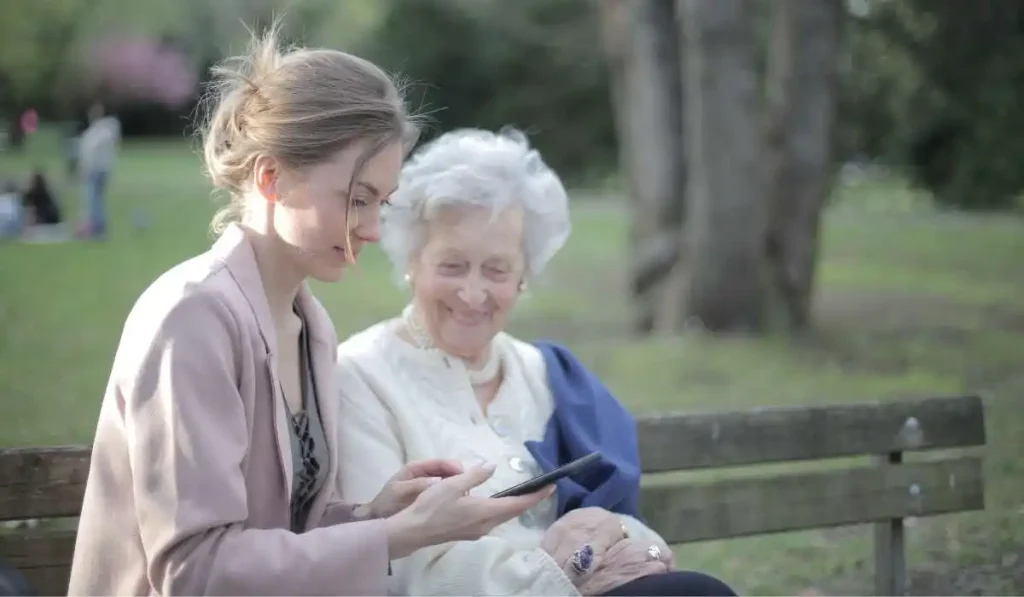As you navigate the complex landscape of caregiving, you may find yourself wondering about the age of those who shoulder this responsibility. The age demographics of caregivers are as varied as the colors of a changing autumn landscape. From the youthful exuberance of young caregivers to the seasoned wisdom of senior caregivers, the spectrum is broad and multifaceted.
But just how old are most caregivers, and what implications does this have for the care they provide? Join us as we explore the diverse ages of caregivers and the impact it has on their crucial role in the lives of those they care for.
Key Takeaways
- The majority of caregivers are between the ages of 35 to 64.
- Caregivers in this age range often face the challenge of balancing caregiving with work and family obligations.
- Young caregivers, who often balance caregiving with school or personal commitments, are a growing area of concern and support resources are available for them.
- Middle-aged caregivers may experience overwhelming stress and should prioritize asking for help and seeking support.
Caregiver Age Demographics
Understanding the age demographics of caregivers is essential for gaining insights into the current landscape of caregiving. As a caregiver, you may be curious about the age groups most commonly involved in caregiving.
According to recent studies, the majority of caregivers fall within the age range of 35 to 64, with the average age being around 49 years old. This means that many caregivers are in the prime of their working years, often balancing caregiving responsibilities with their careers and family obligations.
Caregiver burnout is a significant concern for individuals in this age group, as they may be juggling the demands of caregiving while also managing their own households and potentially caring for their children. Moreover, retirement planning can become a complex issue for caregivers in this age range, as the time and financial resources needed for retirement may be impacted by their caregiving duties.
Understanding the age demographics of caregivers can shed light on the specific challenges faced by individuals in different stages of life. It can also inform support programs and resources tailored to address the needs of caregivers in various age groups.
Young Caregivers
Young caregivers often face unique challenges and responsibilities that may significantly impact their daily lives. As a young caregiver, you may find yourself balancing the demands of caregiving with school, work, or other personal commitments. It’s important to remember that your role as a caregiver is valuable, and there are resources available to support you. Youth engagement in caregiving is a growing area of concern, and it’s essential for young caregivers to seek out support and guidance.
Caregiver support is crucial for young individuals who find themselves in the position of providing care for a family member. It’s okay to ask for help and seek out resources that can assist you in managing your responsibilities. Organizations and community groups often offer programs specifically tailored to young caregivers, providing them with the tools and support they need to navigate their caregiving journey.
Remember that you aren’t alone, and there are people and organizations willing to offer assistance. Take the time to explore the available resources and connect with others who understand the unique challenges of being a young caregiver. Your dedication and compassion are commendable, and it’s important to take care of yourself while fulfilling your caregiving responsibilities.
Middle-Aged Caregivers
At this stage in life, many middle-aged individuals find themselves taking on the responsibility of caregiving for a family member or loved one, which can bring its own set of challenges and rewards. As a middle-aged caregiver, you may face unique stressors such as juggling the demands of caregiving with your own career, children, and personal health.
Balancing these responsibilities can be overwhelming at times, leading to caregiver stress. It’s essential to recognize the signs of caregiver stress, such as feeling tired most of the time, frequent headaches or body pain, and changes in sleeping or eating patterns.
Remember, it’s okay to ask for help. Seeking caregiver support from family, friends, or support groups can provide much-needed relief and understanding. Additionally, exploring respite care options can allow you to take a break and attend to your own needs, reducing the impact of caregiver stress.
Senior Caregivers
As a senior caregiver, you play a crucial role in providing support and assistance to aging family members or loved ones. Your dedication and compassion make a significant impact on the quality of life for the seniors you care for. Senior caregiver experiences can be both rewarding and challenging.
You may find fulfillment in the deepened connections and the opportunity to give back to those who once cared for you. However, it’s also common to experience feelings of stress, isolation, and emotional fatigue. It’s essential to recognize the importance of caregiver support resources.
These resources can provide valuable assistance, guidance, and a sense of community. Support groups, counseling services, and respite care programs are available to help you navigate the complexities of senior caregiving.
Age-Related Challenges
Facing age-related challenges as a caregiver can require adaptability and a willingness to seek out new solutions. As a caregiver, you may experience age-related stress due to the physical and emotional demands of caring for others. Coping strategies such as seeking support from other caregivers, practicing self-care, and setting realistic expectations can help you manage these stressors. Additionally, caregiver age bias and societal perceptions may impact your confidence and ability to provide care. It’s important to remember that your age doesn’t diminish your capacity for empathy, compassion, and effective caregiving. Embracing your experience and seeking opportunities for personal and professional growth can help combat age-related biases.
As you navigate age-related challenges, consider seeking out resources specifically tailored to older caregivers. These resources can provide valuable insights and support tailored to your unique needs. Remember that your age brings wisdom and a depth of experience that can greatly benefit those under your care. By acknowledging and addressing age-related challenges, you can continue to provide exceptional care while nurturing your own well-being.
Impact of Caregiver Age
Navigating the challenges of caregiving, your age can significantly influence the dynamics of the care you provide and the support you may need. Caregiver age and stress are closely linked. Younger caregivers may experience stress due to juggling caregiving responsibilities with work, education, or starting a family. Meanwhile, older caregivers may face stress related to their own health concerns and the physical demands of caregiving. Understanding the impact of age on stress can help tailor support programs to meet the specific needs of different age groups.
Caregiver age also plays a crucial role in determining financial strain. Younger caregivers may experience financial strain due to the impact of caregiving on their career or potential loss of income. On the other hand, older caregivers may face financial strain as they navigate their own retirement and healthcare costs while also providing care. Recognizing the financial challenges associated with different age groups can inform the development of targeted financial assistance and resources.
As a caregiver, being aware of how your age influences stress and financial strain can help you seek appropriate support and resources to navigate these challenges effectively.
Frequently Asked Questions
What Are the Most Common Health Issues Faced by Caregivers of Different Age Groups?
When caring for others, it’s important to consider the mental health and stress levels of caregivers of all ages. Physical health and fatigue are also common issues faced. Take care of yourself while caring for others.
How Does the Age of a Caregiver Impact Their Ability to Handle the Physical and Emotional Demands of Caregiving?
As you age, it’s normal to experience increased stress and challenges in caregiving. Age-related stress can affect your physical and emotional resilience, but finding healthy coping strategies can help you navigate these demands more effectively.
Are There Specific Resources or Support Systems Available for Caregivers in Different Age Groups?
You’ll find age-specific support and resources tailored to meet the needs of caregivers in different age groups. The impact of caregiver age on handling demands is recognized, and there are targeted services available to provide assistance.
What Are the Financial Implications for Caregivers of Different Age Groups, and How Does Age Impact Their Ability to Manage These Challenges?
Managing financial challenges as a caregiver can be tough, regardless of age. Age impact is significant; older caregivers may face retirement concerns, while younger ones juggle career and caregiving. Support systems can help ease caregiver stress.
How Do Caregiving Responsibilities Change as Caregivers Themselves Age, and What Strategies Can Help Caregivers Prepare for These Changes?
As you age, caregiving responsibilities evolve, presenting new challenges. Strategies for adaptation include seeking support, planning for potential health changes, and prioritizing self-care. Embracing change and staying flexible are key to navigating aging challenges.
Conclusion
So, most caregivers are in their late 40s to early 60s, with a significant number falling into the middle-aged category. While there are younger and older caregivers, the majority fall within this age range.
Each age group faces unique challenges, but all caregivers play a crucial role in supporting their loved ones. No matter your age, caregiving can be challenging, but it’s also incredibly rewarding.


